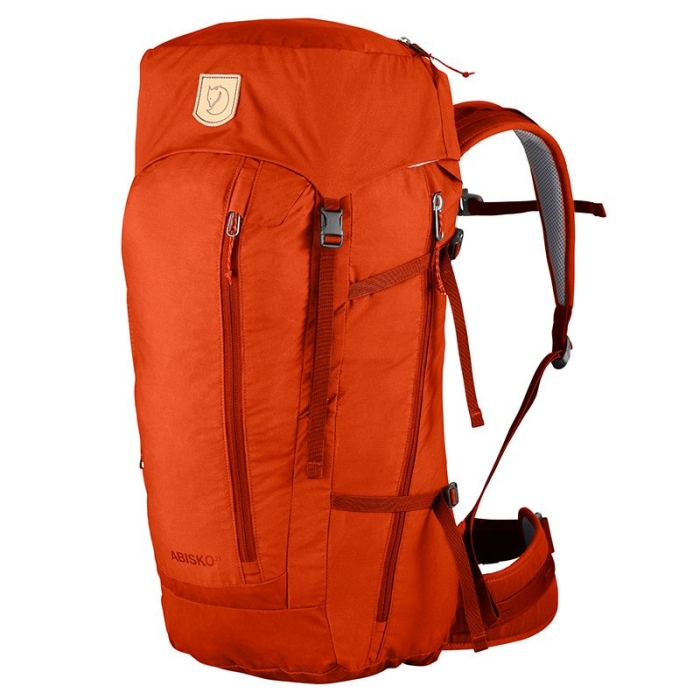Fjällräven Abisko Hike 35
The Fjällräven Abisko Hike 35 is a lightweight and flexible backpack ideal for low weight trekking and cabin-to-cabin trips. The bag features a top-loading design with an extra opening at the side, front pocket and an expandable side pocket so there is plenty space for essentials like a map and water bottle.
The Fjällräven Abisko Hike 35 is a lightweight and flexible backpack ideal for low weight trekking and cabin-to-cabin trips. The bag features a top-loading design with an extra opening at the side, front pocket and an expandable side pocket - so there is plenty space for essentials like a map and water bottle.
Made from G-1000 Eco and G-1000 HeavyDuty Eco in recycled polyester and organic cotton, this back pack is extremely durable. The fabric is waxed to resist moisture and a rain cover is included for extremely wet days.
The bag features lightly padded shoulder straps, a hip belt and a lightweight frame, making it comfortable to carry.
The main compartment has a security pocket inside and is top-loading. There is also a pocket which can hold a hydration system. A useful feature is an extra zipper on the right side, to give quick access to contents.
The bag has a slim profile and fit while still being spacious and stable enough to carry the gear you need for a couple nights away. The top flap can also be raised to hold a sleeping mat. There are a number of useful attachments and loops which are perfect for carrying useful kit like trekking poles and camera bags.
Other information:
Outer Material:
- G-1000® Eco: 65% polyester, 35% cotton
Depth: 26 cm
Height: 61 cm
Width: 28 cm
Volume: 35 L
Carrying System: Fixed
Non Textile Parts of Animal Origin: Yes
Sustainability Credentials
G-1000® Heavy Duty Eco S and G-1000® Eco are robust and long-lived fabrics both made from 65% recycled polyester and 35% organic cotton. The recycled polyester comes from PET-bottles as well as second quality fabrics and fabric offcuts that are otherwise unusable. Recycling existing materials means a reduction in the use of raw materials, particularly those from non-renewable sources.


